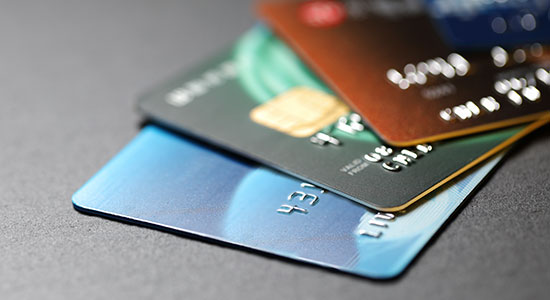
March 18, 2020 – When credit card companies deduct a fee from payments into e-banking accounts, is it possible to pass along those fees so the client pays them?
Question
Our firm bills most matters on an hourly basis, and we usually ask for a small advance on our fees. We recently set up an e-banking trust account to allow our clients to pay the advanced and earned fees with a credit card. Recently our office manager noted that our firm is paying a fair amount in credit card fees, and asked whether we should be passing those costs on to clients.
Can we pass on credit card fees deducted from payments to our e-banking account to clients? Does it make any difference if the fee is an advanced fee payment?
Need Ethics Advice?
As a State Bar member, you have access to informal guidance and help in resolving questions regarding Wisconsin’s Rules of Professional Conduct for Attorneys.
Ethics Hotline: To informally discuss an ethics question, contact State Bar ethics counselors Timothy Pierce or Aviva Kaiser. They can be reached at (608) 229-2017 or (800) 254-9154, Monday through Friday, 9 a.m to 4 p.m.
Answer
Since 2007, Wisconsin lawyers have been permitted to accept credit card (or other electronic) payments for earned or advanced fees.
 Tim Pierce is ethics counsel with the State Bar of Wisconsin. Reach him by email or through the Ethics Hotline at (608) 229-2017 or (800) 254-9154.
Tim Pierce is ethics counsel with the State Bar of Wisconsin. Reach him by email or through the Ethics Hotline at (608) 229-2017 or (800) 254-9154.
It was previously not possible to accept advanced fee payments by credit card, because such payments were required to be deposited into a trust account – and no electronic transactions were permitted into or out of trust accounts. The 2007 changes loosened the restrictions, but did not directly address the fees associated with credit card payments.
Wisconsin’s trust account rule, SCR 20:1.15, was again amended in 2016. Many of those changes to the rule addressed electronic payments. Among the newly adopted subsections was SCR 20:1.15(f)(3)b.4.e, which states:
Except for funds identified in SCR 20:1.15(f)(3)b.4.a. and b., a lawyer or law firm shall not be prohibited from deducting electronic transfer fees or surcharges from the client's funds, provided the client has agreed in writing to accept the electronic payment after being advised of the anticipated fees and surcharges.
While this subsection on its face appears to permit deduction for fees associated with a payment, the reference to SCR 20:1.15(f)(3)b.4.a. and b. is key to understanding this portion of the rule. Those subsections state:
a. All advanced costs and advanced fees held in trust under SCR 20:1.5(f) shall be transferred to the primary IOLTA account by check or by electronic transaction.
b. Earned fees, cost reimbursements, and advanced fees that are subject to the requirements of SCR 20:1.5(g) shall be transferred to the business account by check or by electronic transaction.
In addition, SCR 20:1.15(f)(3)b requires that the gross amount of any deposit into the e-banking account within three business days, and permits the lawyer to keep the lawyer’s own funds in the account in order to make up for any shortfalls caused by deductions.
Therefore, by exclusion, SCR 20:1.15(f)(3)b.4.e prohibits a lawyer from deducting fees from amounts that the client has paid in earned and advanced fees.
The ability to deduct fees found in that rule apply to electronic payments made to the client. For example, if the client agreed to receive a settlement payment by credit card, the client may agree in writing that the lawyer may transfer the net amount to the client.
Thus, the 2016 amendments to the rule make clear that, while law firms have greater flexibility with respect to electronic payment of fees, such as by credit card, lawyers are responsible for attendant fees.
In Case You Missed It: Read Past Ethical Dilemmas
Ethical Dilemmas appears monthly in InsideTrack. Check out these topics from recent issues:
